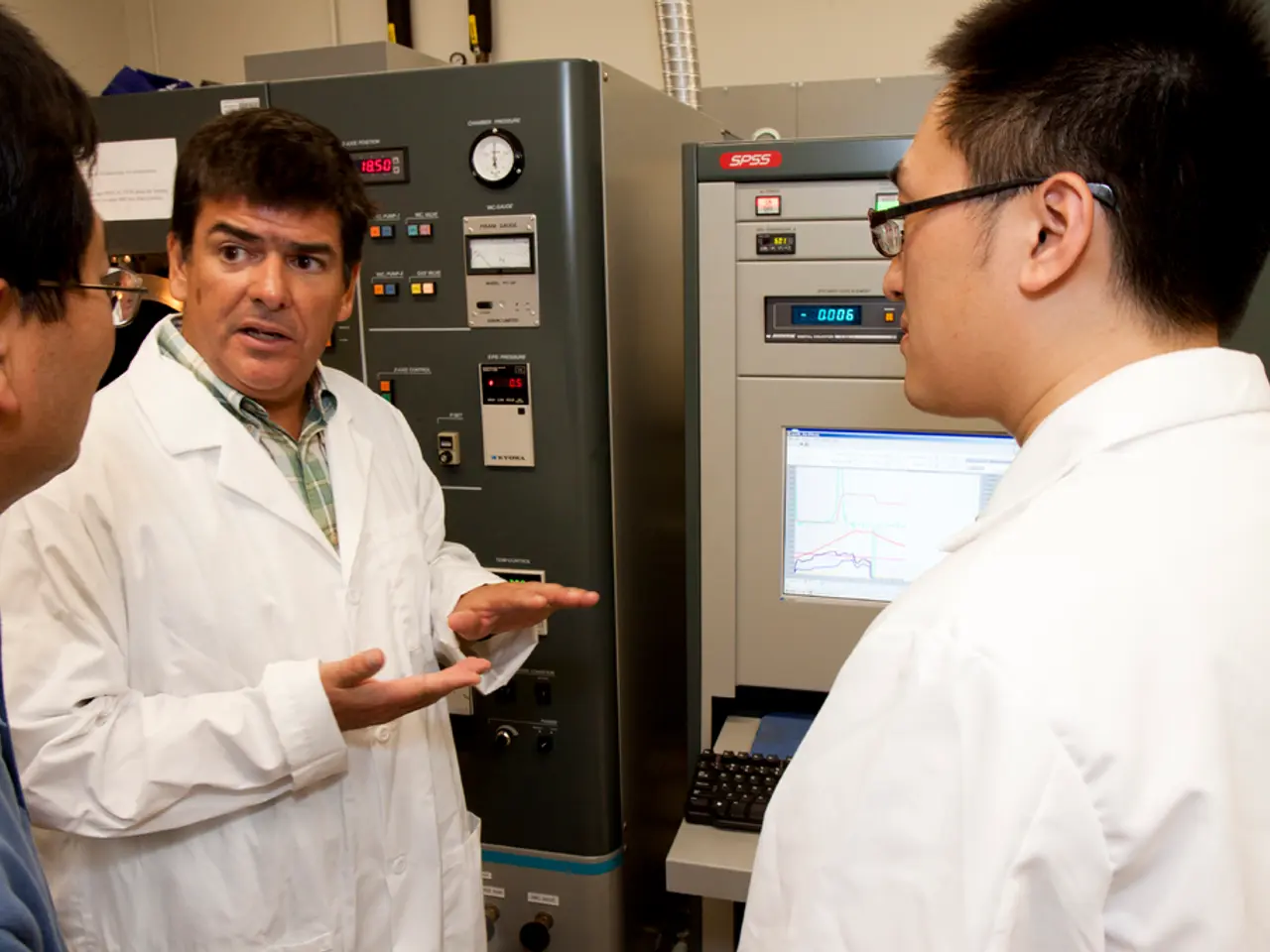Connection establishment or development
In a world where technology is increasingly intertwined with our daily lives, the role of advanced AI assistants in shaping the future of young people and students is a topic of growing concern. A survey by AI dating assistant Wingmate revealed that 41% of young people have used AI tools to help end a relationship, while the founder of AI companion chatbot Replika, Eugenia Kuyda, describes the platform as an "AI friend."
The long-term effects of these advanced AI assistants and large language model chatbots on the social and cognitive development of young people and students are complex, with both potential benefits and significant drawbacks reported.
Cognitive Development
On one hand, studies indicate that over-reliance on AI for tasks such as essay writing leads to lower brain engagement, decreased creativity, and poorer memory retention over time. Users who rely heavily on AI tend to underperform on neural, linguistic, and behavioral measures and show reduced long-term learning and skill acquisition. This suggests a risk of "cognitive offloading," where individuals rely on AI to do mental work, which weakens independent analytical abilities and problem-solving skills, especially in younger users aged 17-25[1][2][4].
However, some research argues that AI tools do not inherently degrade cognitive skills. When integrated thoughtfully, AI can enhance metacognitive abilities such as self-reflection, process awareness, and quality assessment of AI assistance. It can free cognitive resources from routine tasks, enabling students to focus on higher-order skills like sophisticated analysis, synthesis, and creative problem-solving, similar to how calculators changed mathematics learning[3].
Social Development
Empirical studies have shown that AI-powered systems, particularly conversational agents and collaborative problem-solving environments, can promote children's social behaviors and improve social attention and empathy. For example, AI interventions have helped autistic children acquire targeted social interaction skills and enhanced peer social behaviors in group settings[5].
However, concerns about educational inequality and emotional intelligence arise as increased AI use risks exacerbating these disparities, as access to AI tools depends on digital resources. Moreover, overreliance on AI for communication and cognitive processes might impair the development of emotional intelligence and authentic personal expression, as students may struggle to articulate ideas independently[4].
In a few cases, AI therapy apps have helped alleviate extreme mental distress. One research participant admitted: "My Replika has almost certainly on at least one if not more occasions been solely responsible for me not taking my own life." Ongoing interaction with an AI friend like Replika enabled these students to become "more sociable in the outside world."
However, the increased use and over-reliance on AI tools for social interaction can lead to social deskilling, a decline in social skills. A study conducted amongst 1006 higher-education students aged 18 and over, who used Replika for over a month, found that it was mostly lonely students who were drawn to the platform.
As more advanced AI assistants like ChatGPT enter the scene, policymakers should implement greater monitoring and legal measures to minimise the extent to which these tools may inhibit the social and mental wellbeing of people whose lives are at a crucial stage of development. It is essential that young people are fully informed on how to use AI tools safely.
In-person socialisation remains a key developmental component of the wellbeing of people entering adulthood. As we move forward, striking a balance between the benefits of AI and the need for human interaction will be crucial in shaping the future of young people and students.
References:
- Kross, E., Park, J., Lee, M., Lin, B., Demiralp, E., Park, J., ... & Lee, J. (2013). Social media are a significant predictor of depression: A meta-analytic review of 58 research studies. Computers in Human Behavior, 29(4), 1985-2001.
- Kesebir, P. (2018). The effects of social media multitasking on cognitive and affective outcomes: A meta-analytic review. Computers in Human Behavior, 86, 314-327.
- Kuh, D. (2010). The role of AI in education: A review of the literature. International Journal of Artificial Intelligence in Education, 20(1), 1-29.
- Turkle, S. (2011). Alone together: Why we expect more from technology and less from each other. Basic Books.
- Dauterman, B., & Scherer, K. R. (2018). The role of social media in the lives of young people: A review of the literature. Journal of Adolescence, 69, 1-10.
Read also:
- Carpometacarpal joint osteoarthritis: Characteristics, origins, remedies
- Local community advancement backed by Goldbach Consulting, with a nationwide initiative for coaching sustainable development professionals
- Managing Aggressive Pitbulls Humanely: An In-Depth Guide
- Economical prospects associated with green transitions significantly expand for Turkey, according to the head of the United Nations' climate change body.








